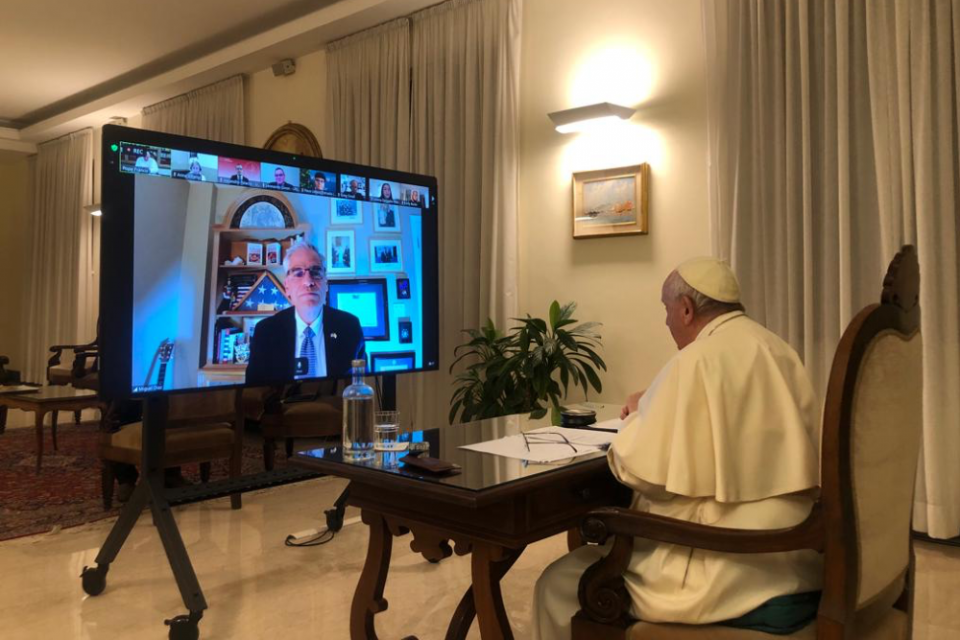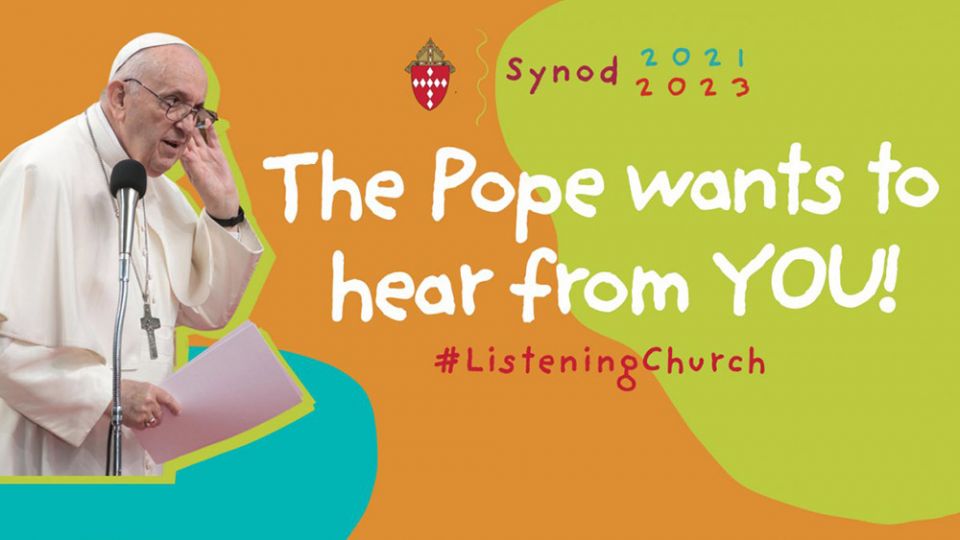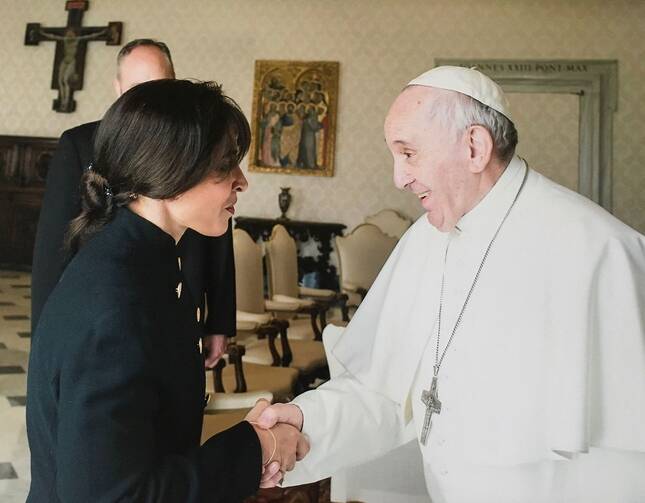~ by Brian Fraga, National Catholic Reporter (NCR)

“If we believe in the imago Dei, that the image of God is in everyone, then if we do not hear from those voices, we are not hearing from the entire body of Christ. And that’s our loss,” said Mary O’Meara, the executive director of the Deaf and Disabilities Ministry for the Archdiocese of Washington.
Diocesan officials, chaplains, social workers, lay ministers, parish leaders and others are listening to people with intellectual and physical disabilities. They are reaching out to those in prisons, homeless shelters, soup kitchens, and mobile home communities. Pastors have organized parish listening sessions for LGBTQ parishioners and seasonal farmworkers near the U.S. southern border.
Pope Francis and other church leaders have framed synodality as a decisive step in the church’s renewal that the Second Vatican Council proposed more than a half century ago. As the Pope has explained it, a synodal church journeys together with all the baptized, including those whose voices are usually not heard.
“Pope Francis’ main question is critical,” said Sr. Donna Ciangio, the chancellor for the Archdiocese of Newark, New Jersey, told NCR. “What does the Holy Spirit expect of the church in the 21st century? We can sit around and look inward, but if we’re not hearing from everyone, we won’t know how we can get the Gospel out today.”
Archdiocese of Chicago
“You can’t be any more marginalized than an inmate in jail,” said Msgr. John Pollard, the synod coordinator for the Archdiocese of Chicago.
Pollard told NCR that the Archdiocese is relying on its Kolbe House Jail Ministry to hear from the estimated 700 Catholic pre-trial detainees at the Cook County Jail, one of the largest single-site pre-detention county facilities in the United States.
“It’s important to hear from them because they are human beings,” said Emily Cortina, the coordinator of outreach and formation at Kolbe House. “We’re following the model Jesus gave us to listen to the voices of those who have stumbled and fallen and are still reaching out for grace and mercy, because that’s really where we find God.”
Diocese of El Paso, Texas
In the colonias, or unincorporated communities, surrounding El Paso, Texas, volunteers are knocking on doors, asking residents how the COVID-19 pandemic impacted them, and how the church can help them regroup and get back on their feet.
“If you are doing a consultation with the people who are already in the pews, who are already coming to church, that’s great, and helpful,” said Surya Kalra, a lead organizer. “The difficult part is figuring out how to reach out to people we don’t see [in church], who used to be here, or would be here if we were different. That requires much more persistence and creativity. They are reaching out to those voices on the margins in house meetings, which are small informal group meetings in private homes.”
Archdiocese of Washington
At Holy Trinity Church in Georgetown, a couple dozen LGBTQ parishioners and their families earlier this year attended a special listening session. Jesuit Fr. Kevin Gillespie, the pastor, said there were tears and some anger directed at the Catholic Church.
“They expressed pain that their relationships aren’t recognized by the church,” Gillespie said. “They expressed their desires for sacramental marriage. In that group session, they expressed how important faith is for them, and how important a welcoming community is for them.”
Archdiocese of Seattle
Catholic Community Services of Western Washington (CCSWW) is planning bilingual in-person listening sessions at food banks, homeless shelters and rural mobile home communities in and around Seattle, Tacoma and Olympia, Washington.
We know the people who are served in those programs, and we feel they’d be comfortable with us,” said Erin Maguire, a regional network builder with CCSWW.
Diocese of San Diego
Marioly Galvan, chancellor for the Diocese of San Diego, told NRC that Catholic Charities of San Diego is helping the diocese to connect with migrant seasonal farmworkers. “We want to remain mindful of those communities. We’re all brothers and sisters, so to hear from their reality and lived experience, I think will be very enlightening for everyone to hear,” said Galvin.
“This moment is an opportunity for renewal and reawakening,” she said. “It is a moment that will lead us to become a more conscious church, to perfect and improve our ways in which we minister to others, and the ways that we listen to one another and journey with others.
To read the entire account, please click here

 ~ by Dan Stockman, Global Sisters Report (GSR)
~ by Dan Stockman, Global Sisters Report (GSR)
 In October, Pope Francis opened the synod on synodality, a two-year engagement of the global churchy focused on listening and encounter. A month later, the Vatican officially launched its Laudato Si’ Action Platform, which invites all parts of the Church to take up seven year programs to adopt sustainable and ecologically friendly practices. And just days after that, the U.S. bishops announced their own plans for what they’ve called a National Eucharistic Revival, a three-year project that will culminate in the summer of 2024.
In October, Pope Francis opened the synod on synodality, a two-year engagement of the global churchy focused on listening and encounter. A month later, the Vatican officially launched its Laudato Si’ Action Platform, which invites all parts of the Church to take up seven year programs to adopt sustainable and ecologically friendly practices. And just days after that, the U.S. bishops announced their own plans for what they’ve called a National Eucharistic Revival, a three-year project that will culminate in the summer of 2024. Ms. Cuda, whom Francis appointed on July 26 to be the first woman ever to head this Vatican office, explained that Loyola University invited her to lead a dialogue on the synodal process that is now underway in the Catholic Church worldwide.
Ms. Cuda, whom Francis appointed on July 26 to be the first woman ever to head this Vatican office, explained that Loyola University invited her to lead a dialogue on the synodal process that is now underway in the Catholic Church worldwide.